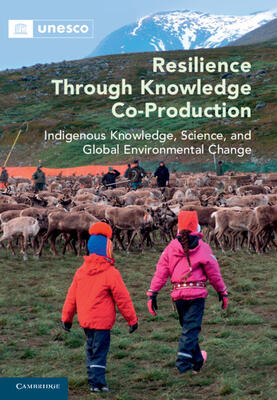
Resilience through Knowledge Co-Production: Indigenous Knowledge, Science, and Global Environmental Change
by:
Marie Roué
,
Douglas Nakashima
,
Igor Krupnik
Language: English
Format: Hardcover
ISBN 10: 1108838308
ISBN 13: 9781108838306
Publication date:
September 29th, 2022
Publisher: Cambridge University Press
Pages: 412
Genres: Science & Technology
In a world grappling with escalating environmental challenges, a new paradigm emerges that intertwines Indigenous knowledge with scientific inquiry. The authors explore how the fusion of traditional ecological practices and modern science can foster resilience in communities facing global environmental shifts. Through collaborative approaches to knowledge production, they highlight the importance of inclusive dialogue between Indigenous peoples and scientists.
The narrative delves into case studies that exemplify successful partnerships, showcasing how Indigenous insights can complement scientific methodologies. It emphasizes that recognizing and valuing diverse epistemologies is crucial for developing sustainable solutions. This exploration not only enriches our understanding of environmental issues but also champions the voices of those who have navigated and adapted to changing ecosystems for generations.
As the authors navigate the intricacies of these collaborations, they offer a hopeful vision for the future. This book stands as a testament to the power of co-production in knowledge creation, advocating for a transformative journey that honors both Indigenous wisdom and scientific rigor. It serves as an essential resource for policymakers, researchers, and anyone invested in addressing the pressing environmental crises we face today.
The narrative delves into case studies that exemplify successful partnerships, showcasing how Indigenous insights can complement scientific methodologies. It emphasizes that recognizing and valuing diverse epistemologies is crucial for developing sustainable solutions. This exploration not only enriches our understanding of environmental issues but also champions the voices of those who have navigated and adapted to changing ecosystems for generations.
As the authors navigate the intricacies of these collaborations, they offer a hopeful vision for the future. This book stands as a testament to the power of co-production in knowledge creation, advocating for a transformative journey that honors both Indigenous wisdom and scientific rigor. It serves as an essential resource for policymakers, researchers, and anyone invested in addressing the pressing environmental crises we face today.